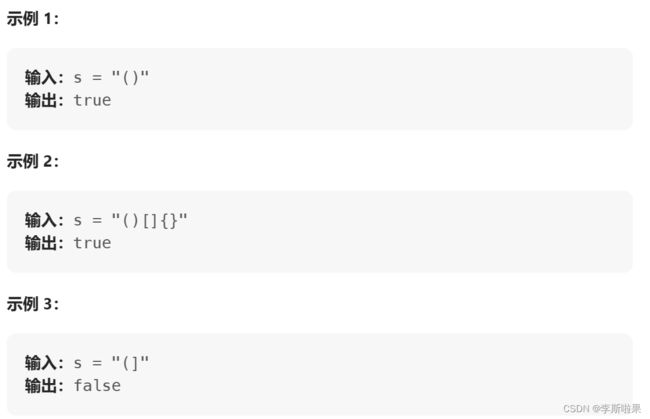- 数据结构(十一)——B树
文章目录1.B树及其基本操作1.1概念1.2基本操作2.B+树的基本概念重点B树的基本特点B树的建立、插入和删除操作B+树的基本概念1.B树及其基本操作1.1概念B树又称多路平衡查找树,B树中所有节点的孩子个数的最大值称为B树的阶m。(1)性质一棵m阶B树或为空树,或为满足一下特性的m叉树:对任一节点,其所有子树高度相同。根节点的子树数∈[2,m],关键字数∈[1,m-1]。其他节点的子树数∈[[
- 数据结构——20.B树
爱看烟花的码农
数据结构数据结构
第一部分:核心理论精讲一、B树(B-Tree)1.为什么需要B树?当数据量非常大时,内存无法一次性装下,大部分数据需要存储在磁盘等外部存储器上。磁盘I/O(读/写)操作相比内存访问非常慢。为了减少磁盘I/O次数,我们需要一种特殊的树结构,它的每个节点可以存储大量信息,从而使得树的高度尽可能低。B树(一种多路平衡查找树)就是为此而设计的。2.B树的定义(m阶)一棵m阶B树是满足以下条件的m路查找树:
- 【PTA数据结构 | C语言版】从顺序表 list 中删除第 i 个元素
秋说
PTA数据结构题目集数据结构c语言算法
本专栏持续输出数据结构题目集,欢迎订阅。文章目录题目代码题目请编写程序,将n个整数存入顺序表,对任一指定的第i个位置,将这个位置上的元素从顺序表中删除。注意:i代表位序,从1开始,不是数组下标。输入格式:输入首先在第一行给出正整数n(≤10^4);随后一行给出n个int范围内的整数,数字间以空格分隔;最后一行给出删除位序i,为int范围内的整数。输出格式:如果删除的位置不合法,则不能删除,在一行中
- 嵌入式C语言中void*的妙用与实战
隐身模式
C/C++c语言开发语言
嵌入式C语言中void*的工程应用详解在嵌入式开发中,void*指针无处不在,理解它的使用场景和注意事项,是写好通用接口和系统模块的关键。目录嵌入式C语言中`void*`的工程应用详解✳️一、什么是`void*`二、典型应用场景1.通用参数传递2.通用回调机制3.通用数据结构(链表、队列)4.封装模块接口(如SDK、HAL)⚠️三、使用`void*`的注意事项✅建议实践:四、实战案例:事件处理机制
- 华为OD机试 2025B卷 - 字符串序列判定(C++&Python&JAVA&JS&C语言)
YOLO大师
华为od华为OD机试2025B卷华为OD2025B卷华为OD机试华为OD机考2025B卷
2025B卷目录点击查看:华为OD机试2025B卷真题题库目录|机考题库+算法考点详解2025B卷100分题型题目描述:字符串序列判定/最后一个有效字符(本题分值100)输入两个字符串S和L,都只包含英文小写字母。S长度<=100,L长度<=500,000。判定S是否是L的有效子串。判定规则:S中的每个字符在L中都能找到(可以不连续),且S在L中字符的前后顺序与S中顺序要保持一致。(例如,S=”a
- C++11 算法详解:std::copy_if 与 std::copy_n
码事漫谈
c++11c++算法开发语言
文章目录引言std::copy_if:条件筛选复制函数原型核心功能参数解析返回值实现逻辑示例:筛选容器中的偶数注意事项std::copy_n:固定数量复制函数原型核心功能参数解析返回值实现逻辑示例:复制前N个元素注意事项对比分析与应用场景功能差异性能对比典型应用场景`std::copy_if`适用场景`std::copy_n`适用场景最佳实践与常见陷阱1.避免目标容器空间不足2.谓词函数的设计3.
- C++游戏开发需要具备哪些能力
星宇工作室
c++开发语言
1.C++语言基础:熟悉C++语法,包括变量、数据类型、控制结构(if,for,while等)、函数、类和对象等。理解C++的内存管理,包括堆和栈的区别、动态内存分配(new/delete)和智能指针的使用。掌握C++的高级特性,如模板、异常处理、STL(标准模板库)等。2.面向对象编程(OOP):理解面向对象的概念,如封装、继承和多态。能够设计和实现面向对象的系统。3.数据结构和算法:熟悉基本的
- 华为OD机试 2025B卷 - 小明减肥(C++&Python&JAVA&JS&C语言)
YOLO大师
华为odc++python华为OD2025B卷华为OD机试华为机试2025B卷华为OD机试2025B卷
2025B卷目录点击查看:华为OD机试2025B卷真题题库目录|机考题库+算法考点详解2025B卷100分题型最新华为OD机试真题目录:点击查看目录华为OD面试真题精选:点击立即查看题目描述小明有n个可选运动,每个运动有对应卡路里,想选出其中k个运动且卡路里和为t。k,t,n都是给定的。求出可行解数量输入描述第一行输入ntk第一行输入每个运动的卡路里按照空格进行分割备注00,00输出描述求出可行解
- AIGC空间智能在服装设计领域的颠覆性变革
AI天才研究院
ChatGPT实战ChatGPTAI大模型应用入门实战与进阶AIGCai
AIGC空间智能在服装设计领域的颠覆性变革关键词:AIGC、空间智能、服装设计、数字孪生、生成式AI、3D人体建模、智能设计系统摘要:本文深入探讨AIGC(人工智能生成内容)与空间智能技术在服装设计领域的融合创新,揭示其如何通过三维人体建模、场景模拟、智能生成算法重构传统设计流程。从技术原理层解析空间智能的核心模块,结合生成对抗网络(GAN)、Transformer模型等前沿算法,展示从创意生成到
- OpenCV实战之二 | 基于哈希算法比较图像的相似性
w94ghz
OpenCV实战笔记opencv哈希算法人工智能
前言☘️本章节主要介绍常用的图像相似性评价算法:图像哈希算法。图像哈希算法通过获取图像的哈希值并比较两幅图像的哈希值的汉明距离来衡量两幅图像是否相似。两幅图像越相似,其哈希值的汉明距离越小。图像哈希算法可以用于图片检索,重复图片剔除,以图搜图以及图片相似度比较。目录一、汉明距离二、img_hash模块三、哈希算法哈希算法实现步骤:代码实现一、汉明距离汉明距离(HammingDistance)是用于
- 煤炭传送带YOLOv8异物检测系统介绍
qq1309399183
计算机视觉实战项目集合YOLO目标检测人工智能深度学习计算机视觉传送带识别异物识别
传送带YOLOv8异物检测系统介绍随着工业自动化水平的不断提高,传送带系统在矿山、食品加工、制造业等领域的应用日益广泛。然而,传送带在运行过程中常常会混入各种异物,如金属零件、石块、木块等,这些异物不仅会影响产品质量,还可能损坏设备甚至危及人员安全。基于YOLOv8算法的传送带异物检测系统应运而生,为解决这一问题提供了智能化解决方案。系统概述YOLOv8(YouOnlyLookOnceversio
- 【学无止境,每天一题】三倍子串
请叫我小蜜蜂同学
算法c++
题目:三倍子串题目描述第三届上海青少年算法竞赛T4时间限制:1000ms空间限制:256mb给定一个十进制正整数n,请问可以从n中截取多少种不同的子串,使得子串构成的数字是3的倍数。例如:当n=1234,有且仅有3,12,123,234这四个子串是3的倍数。输入格式单个整数:表示输入的数字n输出格式单个整数:表示3的倍数的子串数量。数据范围对于20%的数据,1≤n≤10^9对于50%的数据,1≤n
- Docker快速部署Hive服务
长路 ㅤ
运维Docker配置Hive环境大数据远程调试
文章目录前言Docker快速配置hive环境资料获取前言博主介绍:✌目前全网粉丝4W+,csdn博客专家、Java领域优质创作者,博客之星、阿里云平台优质作者、专注于Java后端技术领域。涵盖技术内容:Java后端、大数据、算法、分布式微服务、中间件、前端、运维等。博主所有博客文件目录索引:博客目录索引(持续更新)CSDN搜索:长路视频平台:b站-Coder长路Docker快速配置hive环境Ap
- 算法化资本——智能投顾技术重构金融生态的深度解析
田园Coder
人工智能科普人工智能科普
金融市场的数字化进程正经历着本质性跃迁。当传统交易大厅的开放式喊价被服务器集群的低频嗡鸣取代,当投资决策从人类直觉转向概率矩阵计算,一场由人工智能驱动的资本范式革命已悄然降临。智能投顾作为这场变革的核心载体,其技术架构不仅重塑财富管理的运作逻辑,更在认知层面挑战着金融市场的存在根基。理解这场变革的深度与广度,需要穿透技术表象,审视算法与资本结合引发的复杂生态嬗变。智能投顾系统的技术支柱建立于三重认
- 集训DAY7之线性dp与前缀优化/stl优化
心之所向凉月空
c++开发语言数据结构算法
集训DAY7之线性DP与前缀优化/STL优化目录DP的概念与思想核心DP的题目类型线性DP详解DP的优化策略后记DP的概念与思想核心DP的定义DP也就是动态规划(DynamicProgramming)是求解决策过程最优化的过程动态规划主要用于求解以时间划分阶段的动态过程的优化问题DP的基本思想动态规划算法通常用于求解具有某种最优性质的问题。在这类问题中我们常常需要在多个可行解中寻找最优解,其基本思
- 【华为OD机试真题 2025B卷】2025华为OD机试 B卷目录,考点说明,持续收录中,已更新700+
哪 吒
搬砖工逆袭Java架构师华为od华为OD机试2025B卷pythonjavascript
专栏导读本专栏收录于《华为OD机试(JAVA)真题(B卷+A卷+C卷+D卷+E卷)》。刷的越多,抽中的概率越大,私信哪吒,备注华为OD,加入华为OD刷题交流群,每一题都有详细的答题思路、详细的代码注释、3个测试用例、为什么这道题采用XX算法、XX算法的适用场景,发现新题目,随时更新,全天CSDN在线答疑。2025年5月12日,华为官方已经将华为OD机试(A卷)切换为B卷。目前正在考的是B卷,按照华
- 华为OD机试 - 计算某字符出现次数(Python/JS/C/C++ 2025 B卷 100分)
哪 吒
华为odpythonjavascript2025B卷华为OD机试
2025B卷华为OD机试统一考试题库清单(持续收录中)以及考点说明(Python/JS/C/C++)。专栏导读本专栏收录于《华为OD机试真题(Python/JS/C/C++)》。刷的越多,抽中的概率越大,私信哪吒,备注华为OD,加入华为OD刷题交流群,每一题都有详细的答题思路、详细的代码注释、3个测试用例、为什么这道题采用XX算法、XX算法的适用场景,发现新题目,随时更新。一、题目描述写出一个程序
- 华为OD机试 - 取零食 - 动态规划(Python/JS/C/C++ 2024 E卷 100分)
哪 吒
华为od动态规划python
2025华为OD机试题库(按算法分类):2025华为OD统一考试题库清单(持续收录中)以及考点说明(Python/JS/C/C++)。专栏导读本专栏收录于《华为OD机试真题(Python/JS/C/C++)》。刷的越多,抽中的概率越大,私信哪吒,备注华为OD,加入华为OD刷题交流群,每一题都有详细的答题思路、详细的代码注释、3个测试用例、为什么这道题采用XX算法、XX算法的适用场景,发现新题目,随
- 【漏洞挖掘】——121、Xpath注入深入刨析
FLy_鹏程万里
【WEB渗透】XPath注入SQL注入Web渗透信息安全网络安全web渗透
基本介绍XPath即为XML路径语言,是W3CXSLT标准的主要元素,它是一种用来确定XML(标准通用标记语言的子集)文档中某部分位置的语言。它是一种用来在内存中导航整个XML树的语言,它的设计初衷是作为一种面向XSLT和XPointer的语言,后来独立成了一种W3C标准,XPath基于XML的树状结构,有不同类型的节点,包括元素节点,属性节点和文本节点,提供在数据结构树中找寻节点的能力,可用来在
- 2025上半年最新华为OD机试与面试指南,最新2025B卷独家总结上岸技巧,答读者问!必看!【万字长文,建议收藏】(Python/JS/C/C++)
专栏导读本专栏收录于《华为OD机试真题(Python/JS/C/C++)》。刷的越多,抽中的概率越大,私信哪吒,备注华为OD,加入华为OD刷题交流群,每一题都有详细的答题思路、详细的代码注释、3个测试用例、为什么这道题采用XX算法、XX算法的适用场景,发现新题目,随时更新。2025年5月12日,华为官方已经将华为OD机试(A卷)切换为B卷。目前正在考的是B卷,按照华为OD往常的操作,B卷题目是由往
- LeetCode第239题:滑动窗口最大值(Java)
你说个der
LeetCode题解队列算法数据结构leetcodejava
一:题目给定一个数组nums,有一个大小为k的滑动窗口从数组的最左侧移动到数组的最右侧。你只可以看到在滑动窗口内的k个数字。滑动窗口每次只向右移动一位。返回滑动窗口中的最大值。进阶:你能在线性时间复杂度内解决此题吗?示例:输入:nums=[1,3,-1,-3,5,3,6,7],和k=3输出:[3,3,5,5,6,7]来源:力扣(LeetCode)链接:https://leetcode-cn.com
- LeetCode——寻找两个有序数组的中位数
我爱吃豆芽呀
js算法leetcode算法数组合并寻找两个有序数组的中位数
题目:给定两个大小为m和n的有序数组nums1和nums2。请你找出这两个有序数组的中位数,并且要求算法的时间复杂度为O(log(m+n))。你可以假设nums1和nums2不会同时为空。示例1:nums1=[1,3]nums2=[2]则中位数是2.0示例2:nums1=[1,2]nums2=[3,4]则中位数是(2+3)/2=2.5思路:题目中限制了算法的时间复杂度为O(log(m+n)),就要
- 算法学习领域的宝藏
wylee
算法学习leetcode
labuladong的算法笔记仓库是算法学习领域的宝藏项目,它围绕LeetCode题目,以培养算法思维为核心,提供丰富学习资源与多种实用工具,助力学习者提升算法能力。项目核心内容:仓库包含60多篇原创文章,基于LeetCode题目展开,全面覆盖各种算法题型与技巧,旨在培养学习者的算法思维,避免单纯的代码堆砌。文章注重思路解释和思维框架构建,通过总结算法套路,帮助学习者少走弯路。学习资源与工具算法可
- Leetcode 1248. 统计「优美子数组」
文章目录题目代码(8.2首刷看解析)题目Leetcode1248.统计「优美子数组」代码(8.2首刷看解析)这个题可以用滑动窗口,也可以用前缀和,正好在刷前缀和专题,就用前缀和做了。前缀和类型的题都是搭配哈希表,[j...i]的个数用pre[i]-k==pre[j]来实现,用哈希表存储前缀pre[j]的数量funcnumberOfSubarrays(nums[]int,kint)int{mp:=m
- LeetCode202.快乐数
LeetCode202.快乐数题目:编写一个算法来判断一个数n是不是快乐数。「快乐数」定义为:对于一个正整数,每一次将该数替换为它每个位置上的数字的平方和。然后重复这个过程直到这个数变为1,也可能是无限循环但始终变不到1。如果这个过程结果为1,那么这个数就是快乐数。如果n是快乐数就返回true;不是,则返回false。示例:输入:n=19n=19n=19输出:truetruetrue解释:12+9
- leetcode 202. 快乐数
∮∞
leetcode刷题leetcode算法职场和发展
编写一个算法来判断一个数n是不是快乐数。「快乐数」定义为:对于一个正整数,每一次将该数替换为它每个位置上的数字的平方和。然后重复这个过程直到这个数变为1,也可能是无限循环但始终变不到1。如果这个过程结果为1,那么这个数就是快乐数。如果n是快乐数就返回true;不是,则返回false。示例1:输入:n=19输出:true解释:12+92=8282+22=6862+82=10012+02+02=1示例
- 力扣239 滑动窗口最大值--JS解法
大号密码忘了
力扣刷题算法leetcode数据结构
239.滑动窗口最大值-力扣(LeetCode)(leetcode-cn.com)题目:给你一个整数数组nums,有一个大小为k的滑动窗口从数组的最左侧移动到数组的最右侧。你只可以看到在滑动窗口内的k个数字。滑动窗口每次只向右移动一位。返回滑动窗口中的最大值。算法核心:1.维护一个大小为K的队列(数组)头部是该队列最大的单调队列;方法:推入元素之前,与该大小为K的队列的队尾元素进行比较,如果推入元
- 【LeetCode 热题 100】21. 合并两个有序链表——(解法一)迭代法
xumistore
LeetCodeleetcode链表算法java
Problem:21.合并两个有序链表题目:将两个升序链表合并为一个新的升序链表并返回。新链表是通过拼接给定的两个链表的所有节点组成的。文章目录整体思路完整代码时空复杂度时间复杂度:O(M+N)空间复杂度:O(1)整体思路这段代码旨在解决一个基础且经典的链表问题:合并两个有序链表(MergeTwoSortedLists)。问题要求将两个已按升序排列的链表合并为一个新的、仍然保持升序的链表。该算法采
- 【LeetCode 热题 100】73. 矩阵置零——(解法一)空间复杂度 O(M + N)
xumistore
LeetCodeleetcode矩阵算法
Problem:73.矩阵置零题目:给定一个mxn的矩阵,如果一个元素为0,则将其所在行和列的所有元素都设为0。请使用原地算法。文章目录整体思路完整代码时空复杂度时间复杂度:O(M*N)空间复杂度:O(M+N)整体思路这段代码旨在解决“矩阵置零”问题,它通过HashSet来存储需要置零的行和列的索引,并在一个统一的阶段完成置零操作。算法的整体思路是“先标记,后置零”:第一阶段:使用HashSet进
- LeetCode-169-多数元素(完整代码C语言)
William国学
LeetCode刷题笔记算法数据结构leetcodec语言
LeetCode-169-多数元素(完整代码C语言)题目示例及提示代码1(C语言)(部分样例未通过)代码2(C语言)解读题目给定一个大小为n的数组,找到其中的多数元素。多数元素是指在数组中出现次数大于⌊n/2⌋的元素。你可以假设数组是非空的,并且给定的数组总是存在多数元素。来源:力扣(LeetCode)链接:https://leetcode-cn.com/problems/majority-ele
- iOS http封装
374016526
ios服务器交互http网络请求
程序开发避免不了与服务器的交互,这里打包了一个自己写的http交互库。希望可以帮到大家。
内置一个basehttp,当我们创建自己的service可以继承实现。
KuroAppBaseHttp *baseHttp = [[KuroAppBaseHttp alloc] init];
[baseHttp setDelegate:self];
[baseHttp
- lolcat :一个在 Linux 终端中输出彩虹特效的命令行工具
brotherlamp
linuxlinux教程linux视频linux自学linux资料
那些相信 Linux 命令行是单调无聊且没有任何乐趣的人们,你们错了,这里有一些有关 Linux 的文章,它们展示着 Linux 是如何的有趣和“淘气” 。
在本文中,我将讨论一个名为“lolcat”的小工具 – 它可以在终端中生成彩虹般的颜色。
何为 lolcat ?
Lolcat 是一个针对 Linux,BSD 和 OSX 平台的工具,它类似于 cat 命令,并为 cat
- MongoDB索引管理(1)——[九]
eksliang
mongodbMongoDB管理索引
转载请出自出处:http://eksliang.iteye.com/blog/2178427 一、概述
数据库的索引与书籍的索引类似,有了索引就不需要翻转整本书。数据库的索引跟这个原理一样,首先在索引中找,在索引中找到条目以后,就可以直接跳转到目标文档的位置,从而使查询速度提高几个数据量级。
不使用索引的查询称
- Informatica参数及变量
18289753290
Informatica参数变量
下面是本人通俗的理解,如有不对之处,希望指正 info参数的设置:在info中用到的参数都在server的专门的配置文件中(最好以parma)结尾 下面的GLOBAl就是全局的,$开头的是系统级变量,$$开头的变量是自定义变量。如果是在session中或者mapping中用到的变量就是局部变量,那就把global换成对应的session或者mapping名字。
[GLOBAL] $Par
- python 解析unicode字符串为utf8编码字符串
酷的飞上天空
unicode
php返回的json字符串如果包含中文,则会被转换成\uxx格式的unicode编码字符串返回。
在浏览器中能正常识别这种编码,但是后台程序却不能识别,直接输出显示的是\uxx的字符,并未进行转码。
转换方式如下
>>> import json
>>> q = '{"text":"\u4
- Hibernate的总结
永夜-极光
Hibernate
1.hibernate的作用,简化对数据库的编码,使开发人员不必再与复杂的sql语句打交道
做项目大部分都需要用JAVA来链接数据库,比如你要做一个会员注册的 页面,那么 获取到用户填写的 基本信后,你要把这些基本信息存入数据库对应的表中,不用hibernate还有mybatis之类的框架,都不用的话就得用JDBC,也就是JAVA自己的,用这个东西你要写很多的代码,比如保存注册信
- SyntaxError: Non-UTF-8 code starting with '\xc4'
随便小屋
python
刚开始看一下Python语言,传说听强大的,但我感觉还是没Java强吧!
写Hello World的时候就遇到一个问题,在Eclipse中写的,代码如下
'''
Created on 2014年10月27日
@author: Logic
'''
print("Hello World!");
运行结果
SyntaxError: Non-UTF-8
- 学会敬酒礼仪 不做酒席菜鸟
aijuans
菜鸟
俗话说,酒是越喝越厚,但在酒桌上也有很多学问讲究,以下总结了一些酒桌上的你不得不注意的小细节。
细节一:领导相互喝完才轮到自己敬酒。敬酒一定要站起来,双手举杯。
细节二:可以多人敬一人,决不可一人敬多人,除非你是领导。
细节三:自己敬别人,如果不碰杯,自己喝多少可视乎情况而定,比如对方酒量,对方喝酒态度,切不可比对方喝得少,要知道是自己敬人。
细节四:自己敬别人,如果碰杯,一
- 《创新者的基因》读书笔记
aoyouzi
读书笔记《创新者的基因》
创新者的基因
创新者的“基因”,即最具创意的企业家具备的五种“发现技能”:联想,观察,实验,发问,建立人脉。
第一部分破坏性创新,从你开始
第一章破坏性创新者的基因
如何获得启示:
发现以下的因素起到了催化剂的作用:(1) -个挑战现状的问题;(2)对某项技术、某个公司或顾客的观察;(3) -次尝试新鲜事物的经验或实验;(4)与某人进行了一次交谈,为他点醒
- 表单验证技术
百合不是茶
JavaScriptDOM对象String对象事件
js最主要的功能就是验证表单,下面是我对表单验证的一些理解,贴出来与大家交流交流 ,数显我们要知道表单验证需要的技术点, String对象,事件,函数
一:String对象;通常是对字符串的操作;
1,String的属性;
字符串.length;表示该字符串的长度;
var str= "java"
- web.xml配置详解之context-param
bijian1013
javaservletweb.xmlcontext-param
一.格式定义:
<context-param>
<param-name>contextConfigLocation</param-name>
<param-value>contextConfigLocationValue></param-value>
</context-param>
作用:该元
- Web系统常见编码漏洞(开发工程师知晓)
Bill_chen
sqlPHPWebfckeditor脚本
1.头号大敌:SQL Injection
原因:程序中对用户输入检查不严格,用户可以提交一段数据库查询代码,根据程序返回的结果,
获得某些他想得知的数据,这就是所谓的SQL Injection,即SQL注入。
本质:
对于输入检查不充分,导致SQL语句将用户提交的非法数据当作语句的一部分来执行。
示例:
String query = "SELECT id FROM users
- 【MongoDB学习笔记六】MongoDB修改器
bit1129
mongodb
本文首先介绍下MongoDB的基本的增删改查操作,然后,详细介绍MongoDB提供的修改器,以完成各种各样的文档更新操作 MongoDB的主要操作
show dbs 显示当前用户能看到哪些数据库
use foobar 将数据库切换到foobar
show collections 显示当前数据库有哪些集合
db.people.update,update不带参数,可
- 提高职业素养,做好人生规划
白糖_
人生
培训讲师是成都著名的企业培训讲师,他在讲课中提出的一些观点很新颖,在此我收录了一些分享一下。注:讲师的观点不代表本人的观点,这些东西大家自己揣摩。
1、什么是职业规划:职业规划并不完全代表你到什么阶段要当什么官要拿多少钱,这些都只是梦想。职业规划是清楚的认识自己现在缺什么,这个阶段该学习什么,下个阶段缺什么,又应该怎么去规划学习,这样才算是规划。
- 国外的网站你都到哪边看?
bozch
技术网站国外
学习软件开发技术,如果没有什么英文基础,最好还是看国内的一些技术网站,例如:开源OSchina,csdn,iteye,51cto等等。
个人感觉如果英语基础能力不错的话,可以浏览国外的网站来进行软件技术基础的学习,例如java开发中常用的到的网站有apache.org 里面有apache的很多Projects,springframework.org是spring相关的项目网站,还有几个感觉不错的
- 编程之美-光影切割问题
bylijinnan
编程之美
package a;
public class DisorderCount {
/**《编程之美》“光影切割问题”
* 主要是两个问题:
* 1.数学公式(设定没有三条以上的直线交于同一点):
* 两条直线最多一个交点,将平面分成了4个区域;
* 三条直线最多三个交点,将平面分成了7个区域;
* 可以推出:N条直线 M个交点,区域数为N+M+1。
- 关于Web跨站执行脚本概念
chenbowen00
Web安全跨站执行脚本
跨站脚本攻击(XSS)是web应用程序中最危险和最常见的安全漏洞之一。安全研究人员发现这个漏洞在最受欢迎的网站,包括谷歌、Facebook、亚马逊、PayPal,和许多其他网站。如果你看看bug赏金计划,大多数报告的问题属于 XSS。为了防止跨站脚本攻击,浏览器也有自己的过滤器,但安全研究人员总是想方设法绕过这些过滤器。这个漏洞是通常用于执行cookie窃取、恶意软件传播,会话劫持,恶意重定向。在
- [开源项目与投资]投资开源项目之前需要统计该项目已有的用户数
comsci
开源项目
现在国内和国外,特别是美国那边,突然出现很多开源项目,但是这些项目的用户有多少,有多少忠诚的粉丝,对于投资者来讲,完全是一个未知数,那么要投资开源项目,我们投资者必须准确无误的知道该项目的全部情况,包括项目发起人的情况,项目的维持时间..项目的技术水平,项目的参与者的势力,项目投入产出的效益.....
- oracle alert log file(告警日志文件)
daizj
oracle告警日志文件alert log file
The alert log is a chronological log of messages and errors, and includes the following items:
All internal errors (ORA-00600), block corruption errors (ORA-01578), and deadlock errors (ORA-00060)
- 关于 CAS SSO 文章声明
denger
SSO
由于几年前写了几篇 CAS 系列的文章,之后陆续有人参照文章去实现,可都遇到了各种问题,同时经常或多或少的收到不少人的求助。现在这时特此说明几点:
1. 那些文章发表于好几年前了,CAS 已经更新几个很多版本了,由于近年已经没有做该领域方面的事情,所有文章也没有持续更新。
2. 文章只是提供思路,尽管 CAS 版本已经发生变化,但原理和流程仍然一致。最重要的是明白原理,然后
- 初二上学期难记单词
dcj3sjt126com
englishword
lesson 课
traffic 交通
matter 要紧;事物
happy 快乐的,幸福的
second 第二的
idea 主意;想法;意见
mean 意味着
important 重要的,重大的
never 从来,决不
afraid 害怕 的
fifth 第五的
hometown 故乡,家乡
discuss 讨论;议论
east 东方的
agree 同意;赞成
bo
- uicollectionview 纯代码布局, 添加头部视图
dcj3sjt126com
Collection
#import <UIKit/UIKit.h>
@interface myHeadView : UICollectionReusableView
{
UILabel *TitleLable;
}
-(void)setTextTitle;
@end
#import "myHeadView.h"
@implementation m
- N 位随机数字串的 JAVA 生成实现
FX夜归人
javaMath随机数Random
/**
* 功能描述 随机数工具类<br />
* @author FengXueYeGuiRen
* 创建时间 2014-7-25<br />
*/
public class RandomUtil {
// 随机数生成器
private static java.util.Random random = new java.util.R
- Ehcache(09)——缓存Web页面
234390216
ehcache页面缓存
页面缓存
目录
1 SimplePageCachingFilter
1.1 calculateKey
1.2 可配置的初始化参数
1.2.1 cach
- spring中少用的注解@primary解析
jackyrong
primary
这次看下spring中少见的注解@primary注解,例子
@Component
public class MetalSinger implements Singer{
@Override
public String sing(String lyrics) {
return "I am singing with DIO voice
- Java几款性能分析工具的对比
lbwahoo
java
Java几款性能分析工具的对比
摘自:http://my.oschina.net/liux/blog/51800
在给客户的应用程序维护的过程中,我注意到在高负载下的一些性能问题。理论上,增加对应用程序的负载会使性能等比率的下降。然而,我认为性能下降的比率远远高于负载的增加。我也发现,性能可以通过改变应用程序的逻辑来提升,甚至达到极限。为了更详细的了解这一点,我们需要做一些性能
- JVM参数配置大全
nickys
jvm应用服务器
JVM参数配置大全
/usr/local/jdk/bin/java -Dresin.home=/usr/local/resin -server -Xms1800M -Xmx1800M -Xmn300M -Xss512K -XX:PermSize=300M -XX:MaxPermSize=300M -XX:SurvivorRatio=8 -XX:MaxTenuringThreshold=5 -
- 搭建 CentOS 6 服务器(14) - squid、Varnish
rensanning
varnish
(一)squid
安装
# yum install httpd-tools -y
# htpasswd -c -b /etc/squid/passwords squiduser 123456
# yum install squid -y
设置
# cp /etc/squid/squid.conf /etc/squid/squid.conf.bak
# vi /etc/
- Spring缓存注解@Cache使用
tom_seed
spring
参考资料
http://www.ibm.com/developerworks/cn/opensource/os-cn-spring-cache/
http://swiftlet.net/archives/774
缓存注解有以下三个:
@Cacheable @CacheEvict @CachePut
- dom4j解析XML时出现"java.lang.noclassdeffounderror: org/jaxen/jaxenexception"错误
xp9802
java.lang.NoClassDefFoundError: org/jaxen/JaxenExc
关键字: java.lang.noclassdeffounderror: org/jaxen/jaxenexception
使用dom4j解析XML时,要快速获取某个节点的数据,使用XPath是个不错的方法,dom4j的快速手册里也建议使用这种方式
执行时却抛出以下异常:
Exceptio

